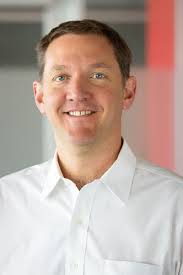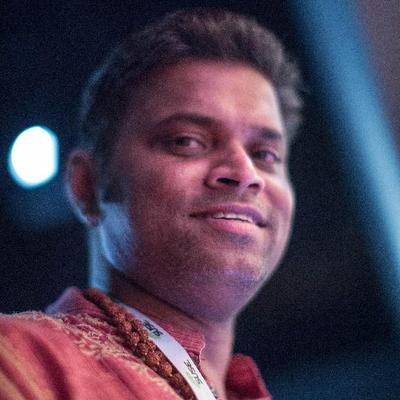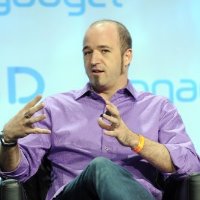 With so much transition ahead of us at the Federal, state, and local levels in 2017, it is important to begin to plan for what the Health IT landscapes will look like for the coming year (and beyond). Several key reports have come out – mostly from government sources – which are worth serious consideration for any Health IT planner...There are no easy answers here, and it’s easy to get overwhelmed by the information presented in these reports. But they cannot be ignored and can help form the basis of a solid organizational or governmental strategy.
With so much transition ahead of us at the Federal, state, and local levels in 2017, it is important to begin to plan for what the Health IT landscapes will look like for the coming year (and beyond). Several key reports have come out – mostly from government sources – which are worth serious consideration for any Health IT planner...There are no easy answers here, and it’s easy to get overwhelmed by the information presented in these reports. But they cannot be ignored and can help form the basis of a solid organizational or governmental strategy.
Latest News
A Business Plan for Your Open Source Project
 Open sourcing your code is only a small part of building a successful open source community. Like any new venture, you need a vision of what you want to achieve and a concrete plan that will take you there. You want to be able to answer questions about your project like: Who is this project geared towards? Why would someone want to use this code, let alone, contribute to it?What core problem am I trying to solve?
Open sourcing your code is only a small part of building a successful open source community. Like any new venture, you need a vision of what you want to achieve and a concrete plan that will take you there. You want to be able to answer questions about your project like: Who is this project geared towards? Why would someone want to use this code, let alone, contribute to it?What core problem am I trying to solve?
- Login to post comments
Top Open Source Projects to Watch in 2017
 No one has a crystal ball to see the future of technology. Even for projects developed out in the open, code alone can't tell us whether or not a project is destined for success—but there are hints along the way. For example, perhaps it's not unreasonable to assume that the projects that will help shape our future are those projects that have first seen rapid growth and popularity among the developer community. So which new projects should an open source developer watch in 2017? Let's take a look at a few projects that emerged in 2016 to achieve rapid notoriety in the GitHub community...
No one has a crystal ball to see the future of technology. Even for projects developed out in the open, code alone can't tell us whether or not a project is destined for success—but there are hints along the way. For example, perhaps it's not unreasonable to assume that the projects that will help shape our future are those projects that have first seen rapid growth and popularity among the developer community. So which new projects should an open source developer watch in 2017? Let's take a look at a few projects that emerged in 2016 to achieve rapid notoriety in the GitHub community...
- Login to post comments
Help Us Integrate GitLab and the Open Science Framework
 For years, the benefits of open source code development have been self-evident to the software development community: Transparency leads to collaboration, and collaboration leads to better and more secure code. The scientific community is just starting to understand these benefits. The growing open science movement is using these same lessons to make the scientific process more transparent, so that research findings will be more reproducible. In order to realize the benefits of open science, we must use a wide set of research tools to enable transparency, which will lead to increased discoverability, reuse, and collaboration...
For years, the benefits of open source code development have been self-evident to the software development community: Transparency leads to collaboration, and collaboration leads to better and more secure code. The scientific community is just starting to understand these benefits. The growing open science movement is using these same lessons to make the scientific process more transparent, so that research findings will be more reproducible. In order to realize the benefits of open science, we must use a wide set of research tools to enable transparency, which will lead to increased discoverability, reuse, and collaboration...
- Login to post comments
6 Growing Pains of Open Source Organizations That You Can Avoid
 Everything has a season, and as organizations age—communities, charities, companies, churches and more—they face similar diseases of time. These are emergent patterns of failure that arise not from mistakes but from the consequences of earlier success. In open source, we are seeing the same patterns emerge; this should not be a surprise. Some of them are unavoidable. Understanding them helps leaders reduce the risk that will arise and helps identify them when they do. This is by no means a comprehensive list, but we have encountered all of these modes of systemic failure, some of them often...
Everything has a season, and as organizations age—communities, charities, companies, churches and more—they face similar diseases of time. These are emergent patterns of failure that arise not from mistakes but from the consequences of earlier success. In open source, we are seeing the same patterns emerge; this should not be a surprise. Some of them are unavoidable. Understanding them helps leaders reduce the risk that will arise and helps identify them when they do. This is by no means a comprehensive list, but we have encountered all of these modes of systemic failure, some of them often...
- Login to post comments
Jim Whitehurst Argues that Innovation Requires New Approaches to Feedback and Failure
 "Organizational culture" is something plenty of people are puzzling over today, and with good reason. More and more leaders are realizing that the culture permeating and guiding their organizations will determine whether they succeed or fail. The term “organizational culture” refers to an alignment between two forces inside an organization: values and behaviors. Aligning those forces productively is one of the most difficult and important tasks facing leaders today. Customers and partners routinely tell me they want to create a "culture of innovation" in their organizations. By this, they usually mean that they want to create contexts where certain actions—those that generate new and unforeseen sources of value capable of fueling growth—are not only expected but also commonplace...
"Organizational culture" is something plenty of people are puzzling over today, and with good reason. More and more leaders are realizing that the culture permeating and guiding their organizations will determine whether they succeed or fail. The term “organizational culture” refers to an alignment between two forces inside an organization: values and behaviors. Aligning those forces productively is one of the most difficult and important tasks facing leaders today. Customers and partners routinely tell me they want to create a "culture of innovation" in their organizations. By this, they usually mean that they want to create contexts where certain actions—those that generate new and unforeseen sources of value capable of fueling growth—are not only expected but also commonplace...
- Login to post comments
9 Lessons from 25 years of Linux Kernel Development
 Because the Linux kernel community celebrated a quarter-century of development in 2016, many people have asked us the secret to the project's longevity and success. I usually laugh and joke that we really have no idea how we got here. The project has faced many disagreements and challenges along the way. But seriously, the reason we've made it this far has a lot to do with the community's capacity for introspection and change. About 16 years ago, most of the kernel developers had never met each other in person—we'd only ever interacted over email—and so Ted T'so came up with the idea of a Kernel Summit. Now every year kernel developers make a point to gather in person to work out technical issues and, crucially, to review what we did right and what we did wrong over the past year...
Because the Linux kernel community celebrated a quarter-century of development in 2016, many people have asked us the secret to the project's longevity and success. I usually laugh and joke that we really have no idea how we got here. The project has faced many disagreements and challenges along the way. But seriously, the reason we've made it this far has a lot to do with the community's capacity for introspection and change. About 16 years ago, most of the kernel developers had never met each other in person—we'd only ever interacted over email—and so Ted T'so came up with the idea of a Kernel Summit. Now every year kernel developers make a point to gather in person to work out technical issues and, crucially, to review what we did right and what we did wrong over the past year...
- Login to post comments
Is "Modern Medicine" Indistinguishable From Magic?
 Evidently, most of health care's technologies are not yet sufficiently advanced. For example, just think about chemotherapy. We've spent lots of money developing ever more powerful, always more expensive, hopefully more precise drugs to combat cancers. In many cases they've helped improve cancer patients' lifespans -- adding months or even years of life. But few who take them would say the drugs are without noticeable side effects -- e.g., patients often suffer nausea, vomiting, hair loss, fatigue, appetite loss, sexual issues, or a mental fog that is literally called "chemo brain."...
Evidently, most of health care's technologies are not yet sufficiently advanced. For example, just think about chemotherapy. We've spent lots of money developing ever more powerful, always more expensive, hopefully more precise drugs to combat cancers. In many cases they've helped improve cancer patients' lifespans -- adding months or even years of life. But few who take them would say the drugs are without noticeable side effects -- e.g., patients often suffer nausea, vomiting, hair loss, fatigue, appetite loss, sexual issues, or a mental fog that is literally called "chemo brain."...
- Login to post comments
Preparing for 2017: Four Important Reports
- Login to post comments
How Praekelt.org and Open Source Provide Critical Services to Enable Social Change
 In Eastern and Southern Africa, women are still dying unnecessarily during the basic, natural act of giving life. According to Unicef, “In 2010, close to 58,000 women lost their lives during pregnancy and childbirth, accounting for more than one fifth of all such deaths in the world.” Gustav Praekelt, founder of the South African design and development firm Praekelt.com, was deeply affected by the high maternal mortality rate in his country and realized in 2007 that open source software and mobile phones could help provide critical information and services to combat poverty and maternal mortality rates -- among other social issues -- across the continent and potentially around the world.
In Eastern and Southern Africa, women are still dying unnecessarily during the basic, natural act of giving life. According to Unicef, “In 2010, close to 58,000 women lost their lives during pregnancy and childbirth, accounting for more than one fifth of all such deaths in the world.” Gustav Praekelt, founder of the South African design and development firm Praekelt.com, was deeply affected by the high maternal mortality rate in his country and realized in 2007 that open source software and mobile phones could help provide critical information and services to combat poverty and maternal mortality rates -- among other social issues -- across the continent and potentially around the world.
- Login to post comments
Jono Bacon's Top Open Source Conference Picks for 2017
 Many of you reading this will be fans of open source who would love to get out and meet open source leaders, companies, and users at conferences. With most of us having to prioritize conferences either due to budgetary or family reasons (or both), knowing which events we should prioritize can be difficult. I have spent my career treading the boards from conference to conference all over the world, so I figured I would share some of the conferences that I would heartily recommend for 2017...
Many of you reading this will be fans of open source who would love to get out and meet open source leaders, companies, and users at conferences. With most of us having to prioritize conferences either due to budgetary or family reasons (or both), knowing which events we should prioritize can be difficult. I have spent my career treading the boards from conference to conference all over the world, so I figured I would share some of the conferences that I would heartily recommend for 2017...
- Login to post comments